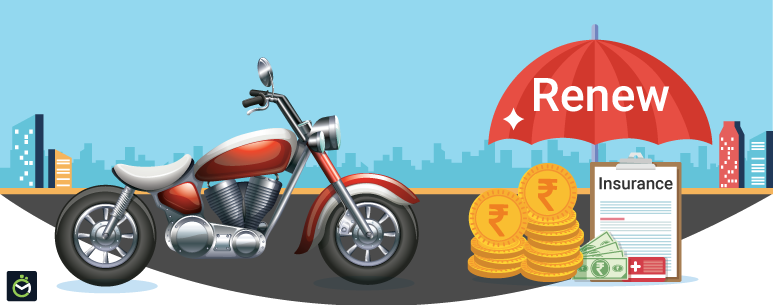Two wheeler insurance are one of the most cost-effective modes of transportation. Two-wheeler ownership has grown throughout time, and one in every three Indian homes now owns a two-wheeler. In comparison to May 2021 statistics, the two-wheeler sector increased by 246 percent in May 2022. As a result, the popularity of two-wheelers is growing. In addition, every bike owner is required to insure his vehicle with a two wheeler insurance policy. Poor road conditions and slick tyres, especially during the monsoon season, may often result in an accident. Rains have a significant influence on two-wheelers since rainwater continually falls on the vehicle, impairing its performance and ruining the system. The likelihood of the vehicle experiencing a mechanical breakdown owing to monsoon rains is significant, necessitating the purchase of two wheeler insurance.
Renewal of two wheeler insurance is required throughout the monsoon season, and here’s why you should do it right now.
Natural disaster protection: Heavy rains may wreak havoc, often damaging your automobile. A two-wheeler insurance policy may assist since it protects against natural catastrophes such as floods, fires, cyclones, and earthquakes, as well as man-made calamities such as theft, burglary, strikes, and so on. A two bike insurance policy would therefore assist you in obtaining compensation for the losses sustained.
No claim bonus: If you renew your two-wheeler insurance on time, your no-claim incentive will remain intact. The NCB is the premium savings you are entitled to if you make no claims throughout the insurance year. If the insurance is not renewed within 90 days of its expiration date, the no-claim bonus expires.
Disadvantage of no break-in policy: If you do not renew your two-wheeler policy before the monsoon, and the policy date has expired, it will be regarded a break-in policy. In such circumstances, the bike will be inspected, and if the surveyor discovers any damage, the premium will be raised.
Continue to be insured: The monsoon season is unpredictable and may be quite inconvenient. Non-renewal of coverage might result in increased out-of-pocket expenditures as well as legal penalties if you do not renew your insurance cover on time. It is required to insure a two-wheeler with a valid third-party insurance policy, which protects against harm to third-party persons or property.
What might cause harm to your bike during the monsoon?
Waterlogging, potholes, and excessive dirt may all harm your bike. As a result, it is recommended to renew your two-wheeler before the monsoon season to prevent paying for damages out of your own wallet.
Monsoon bike preparation tips
Keep the chains lubricated: Indian roads are littered with potholes and puddles during the monsoon season. As a result, to guarantee that you can move about quickly, check the lubrication of the bike’s chain and get it greased if necessary. To maintain the chain in excellent condition, lubricate it with grease and motor oil.
Check the tyre grip: During the monsoon season, the bike’s tyres are more prone to sliding, which might lead to an accident. As a result, inspect the grip for wear and tear and, if necessary, replace it.
READ ALSO: Why Should You Have Multiple Nominees in Your Term Plan?
Examine for moisture
Rainwater may have a significant influence on the air filter and other elements of the car. If the car’s engine shuts down in the middle of the journey or if you experience any difficulty while starting it, it is essential to have the vehicle examined and the damp areas cleaned.


